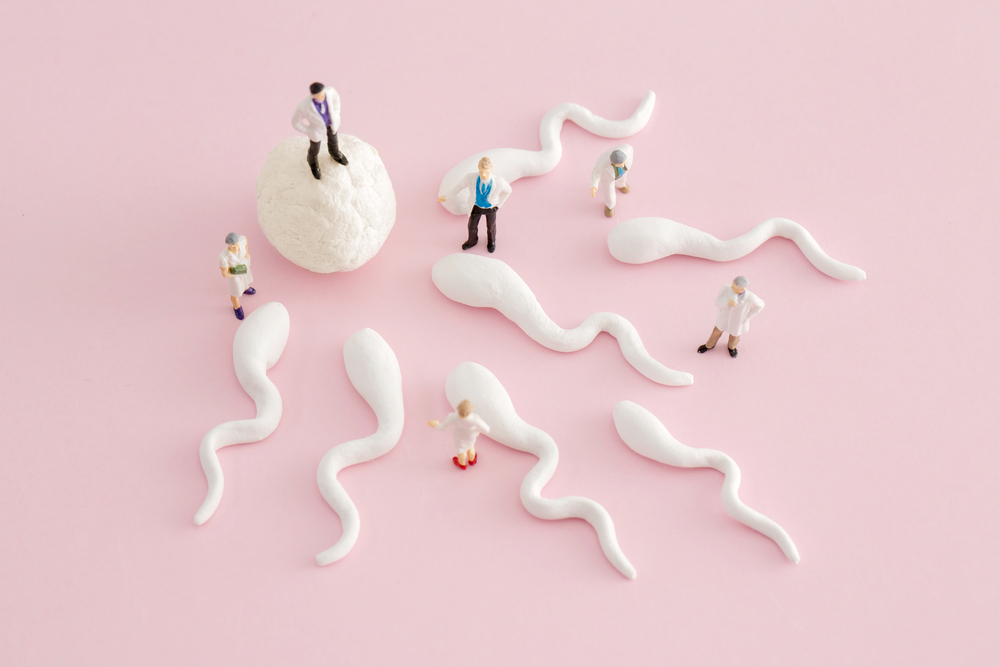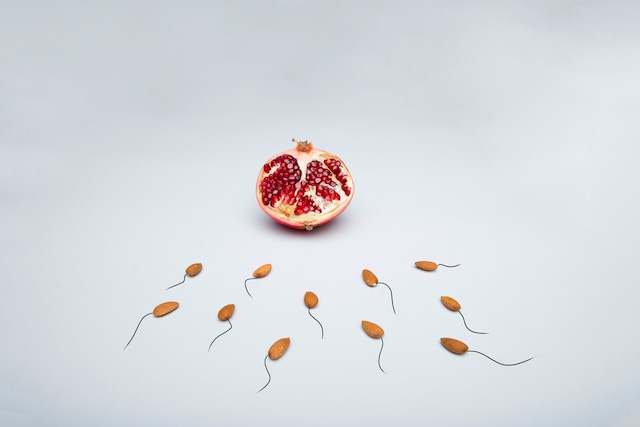Pregnancy is a special time in a woman’s life. It is the process in which an egg is fertilized by a sperm, and then develops into a fetus. This is when the fetus, or unborn baby, develops inside her uterus for about 280 days or 40 weeks. >It is a time of immense change in a woman’s life. It can be an exciting and scary time, but it also comes with many changes that will affect the rest of her life. I want to help you understand what pregnancy really means so you know how to prepare for this monumental event.
It’s not necessarily the only indication that you’re expecting. There are a variety of signs that indicate pregnancy before you’re scheduled to have your period. If you’re trying for a baby and are looking at these very early signs of pregnancy 1 week or couple of weeks before the time you’re expecting your period.
Contents
- 1 - What is pregnancy?
- 2 - 12 Signs Early and Symptoms of Pregnancy in First Month!
- 2.1 - Missed menstrual cycle
- 2.2 - Swollen, tender breasts
- 2.3 - Nausea with or without Vomiting
- 2.4 - More frequent urination
- 2.5 - Fatigue
- 2.6 - The mood
- 2.7 - Bloating
- 2.8 - Light streaks of light
- 2.9 - Cramping
- 2.10 - Constipation
- 2.11 - Food Dislikes
- 2.12 - Nasal congestion
- 2.13 - Vaginal discharge increased
- 3 - What are the signs of 1, or 3 Weeks of Pregnant?
- 4 - How does pregnancy affect a woman?
- 5 - When should a pregnancy test be performed?
What is pregnancy?
Pregnancy usually begins at implantation of the egg in the uterus. Early signs of pregnancy include an increased sensitivity to hCG, nausea and vomiting, frequent urination, craving for specific foods (mostly meat), breast tenderness and soreness, missed periods after an unprotected affair with multiple partners are all indicators that you are pregnant.
Pregnant women will often feel more tired during the third trimester as their body works extra hard dealing with various growing demands both now and later on when baby is born.
12 Signs Early and Symptoms of Pregnancy in First Month!
Missed menstrual cycle
If you’re in your childbearing years, and one week or more has gone by without the beginning of your expected menstrual cycle then you could be pregnant. But, this sign could be confusing if you’ve got unreliable menstrual cycles.
Swollen, tender breasts
Early in pregnancy hormonal changes can cause your breasts to become sensitive and painful. The discomfort should ease in the course of a few weeks when your body is adjusting to the hormonal changes.
Nausea with or without Vomiting
Morning sickness, which can happen anytime during the day or at the night, typically occurs between one and two months after the time you are pregnant. But some women experience nausea earlier than others, and some women never have it. The reason behind nausea during pregnancy isn’t understood the hormones of pregnancy are likely to be a factor.
More frequent urination
You might find yourself having more frequent urination than normal. The volume of blood in your body grows in pregnancy, prompting your kidneys to process more fluid, which then goes into the bladder.
Fatigue
Fatigue also ranks as one of the most common symptoms that indicate pregnancy. It is unclear what causes insomnia in the first trimester of pregnancy. But, a rapid increase in levels of the hormone progesterone in the early stages of pregnancy could cause fatigue.
The mood
The flood of hormones that your body produces during the early stages of pregnancy can cause you extremely emotional and weepy. Also, mood swings are normal.
Bloating
Hormonal changes during early pregnancy may make you feel bloated similar to how you feel at the beginning of your menstrual cycle.
Light streaks of light
Light spotting might be among the first signs of pregnancy. It is also known as implantation bleeding. It occurs after the egg that is fertilized is attached to the uterus’s lining approximately 10-14 days after conception. Implantation bleeding happens around the time that you’d anticipate having menstrual cycles. But some women do not have the condition.
Cramping
Some women experience minor cramping in their uterus during the pregnancy.
Constipation
Hormonal changes cause digestion to become less efficient, and this could cause constipation.
Food Dislikes
When you’re pregnant and you’re pregnant, you may be less sensitive to specific smells and your taste could change. As with other signs associated with pregnancy, the preferences for food could be explained by hormonal changes.
Nasal congestion
Increasing hormone levels and blood production may cause the mucous membranes of your nose to expand dry out, and then bleed quickly. It could lead you to experience nasal congestion or a runny nose.
Vaginal discharge increased
The early signs of a pregnancy’s discharge are something that all pregnant women suffer from. The vaginal discharge can be described as similar to the type that’s released after ovulation. It can also increase in time. If you have a problem with the early signs of pregnancy discharge. It may be beneficial to wear a panty liner.
What are the signs of 1, or 3 Weeks of Pregnant?
In the first, second, and three of your pregnancy, you might not even realize the possibility of pregnancy. In fact, you may not even notice or experience any pregnancy symptoms at all, since it’s very early. This isn’t a problem, it’s common (and it’s possible you haven’t even been conceived until three months pregnant). A missed period is typically the first indication that you might be expecting, and around the time that you have missed the period or waited a bit longer, you might begin to notice those early pregnancy symptoms first week or 3 weeks.
How does pregnancy affect a woman?
Pregnancy affects a woman’s body in so many ways. Early signs of pregnancy can include nausea, vomiting, tender or swollen breasts, tiredness, difficulty sleeping and food cravings to name just a few.
Pregnancy is also responsible for releasing many hormones which will have an impact on moods and emotions, including the happy hormone serotonin which drops dramatically during pregnancy with some women experiencing post partum depression or obsessive-compulsive disorder. Child birth itself requires the mother to give up her own blood supply through tearing at the opening of her vagina – this usually results in heavy hemorrhaging for one last time before it heals back together again.
What are the stages of pregnancy?
There are two stages in the common medical understanding of pregnancy. The first stage stretches from initial implantation to 6-12 weeks gestation, when the fertilized egg attaches to the uterine wall. This stage is often referred to as “the embryonic period” or “the fetal period” because it encompasses the time during which formative growth takes place, even though there is no “baby” in sight at this point.
The second stage, which occupies an inestimable chunk of a woman’s life in between twenty and thirty four weeks gestation (contrary to popular belief), begins with childbirth. It also includes postpartum care that extends into breastfeeding postnatal care.
When should a pregnancy test be performed?
Pregnancy tests should only be performed when you suspect that you may be pregnant. Clinics recommend a pregnancy test be performed after a woman misses her period, or earlier if the risk of being pregnant is higher.
The first day of your menstrual cycle is the best time to take a pregnancy test, so if you haven’t started yet, hopefully you can find out! There are some other factors that might mean it’s better for you to wait. For example, if it’s been less than 24 hours since doing anything with sperm (ejaculation or sex), then the sperm may be inside your reproductive tract waiting to fertilize an egg. If that is what happened then performing a pregnancy test too early could lead to false negatives. It also works the other way around, if there was unprotected intercourse during ovulation and fertility drugs were given before conception, then there might be a bleed in the uterus that will dilute any positive result on aa test taken before the missed period. So, if any of these situations apply to you, then it’s a good idea to wait at least a week after you miss your period to take a pregnancy test.
The Final Word
Pregnancy symptoms vary for each woman. Certain women might experience signs like spotting or experiencing headaches, in the first week of pregnancy. Some women may experience only the feeling of having missed their period. Some women may not experience any symptoms whatsoever.
If someone is suffering from signs or symptoms, the most effective method to tell whether they’re pregnant is to conduct an ultrasound test for pregnancy.
There are many changes that happen to a woman’s body in the first month of pregnancy. The symptoms may vary from person to person because every woman is different and there is no set timeline for when they will experience each symptom. This article has outlined some common things you might expect, but it’s always best to talk about your individual situation with your doctor or midwife if you have any concerns at all. We hope this was helpful!




